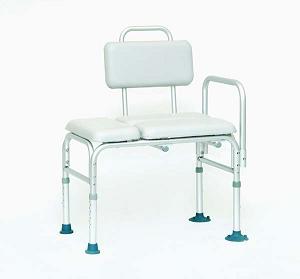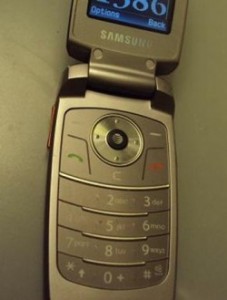Hospice has delivered an endless supply of equipment for our use: a hospital bed, a continuously inflating mattress, a shower chair, a wheeled walker, a movement alarm, a bedside table, plastic bed liners called chucks, an automatic chair that raises people to a standing position, a bag of Depends and a magic-foam pad to sit on. We’ve met four nurses, one doctor, one social worker and one aide. And we have phone numbers to call for 24-hour access to these people or to request additional supplies.
Today we had an appointment with the aide, our helper, who was coming to give Nate a shower. She’d come once before, and I thought we were over the hump of Nate’s embarrassment with a woman other than me seeing him naked. But today when I said, “Guess who’s coming?” Nate answered, “I hope it’s not that woman who gave me the shower. I hope she never comes again.”
We all laughed, and I said, “Oh she’s coming all right, and I’m sure she’ll see to it that you cooperate!”
Lori is a powerful woman who doesn’t take guff from patients. She has a heart of gold and works hard all day bending and twisting to get dirty people clean, most of them struggling with body movement, unable to help her very much.
“She’s bathed people for 20 years,” I assured Nate, “and you’re just one of many she’s helping today.”
He winced and muttered, “Oh boy,” but then resigned himself to her arrival.
Bubbling with good cheer and strong respect for Nate, Lori chatted with him throughout his shower, covering him carefully at strategic moments to give him an illusion of privacy. She rubbed him dry with a towel, careful to keep an extra one over his shoulders so he wouldn’t get cold. It was a scene similar to hundreds in my past as a mother drying the bubble-bath-clean bodies of seven children.
Lori also dressed Nate, careful not to hurt him or touch the dime-sized tumors erupting here and there on his body. When he was dressed, she combed his hair, continuing to talk soothingly and deliver praise. She also helped him with his electric shaver.
After Nate’s bath, Lori showed me how to handle a new set of circumstances coming into our future as Nate’s caregivers: changing the messy diaper of a bed-ridden patient. This is work I never dreamed I would do. Even as she was explaining it, I was wishing it away. But she left us with a big bag of pull-up Depends, and this reality is right around the corner.
Preparing to leave, Lori looked at Nate. “OK, big guy, you’re a new man,” she said, standing back to admire her work. “And I’ll see you again on Friday.” He gave her a weak smile but was too worn out from the ordeal to be enthusiastic. Later he made a joke about her wanting to have her way with him, but we all heard a hint of appreciation in his voice.
I love Elisabeth Elliott’s quote: “Just do the next thing.” This is simple, wise counsel. Lori demonstrated this in her approach to Nate’s bath. One task at a time, she just did the next thing. It was hard work, and she was huffing and puffing as she lifted, supported, bent and squatted. But she made a point of steadily moving forward.
As Nelson reminded me tonight, “Don’t stress about that diaper thing today, because you don’t have to do it today. Wait til its right in front of you, and stress about it then.” That fits right in with Mrs. Elliott’s quote above. While you’re stressing out, just do the next thing.
My sister is fond of saying, “God doesn’t call the equipped; he equips the called.” She’s right. And God is in the process of equipping me, equipping all of us, to simply do the next thing.
“Commit your actions to the Lord, and your plans will succeed.” (Proverbs 16:3)



